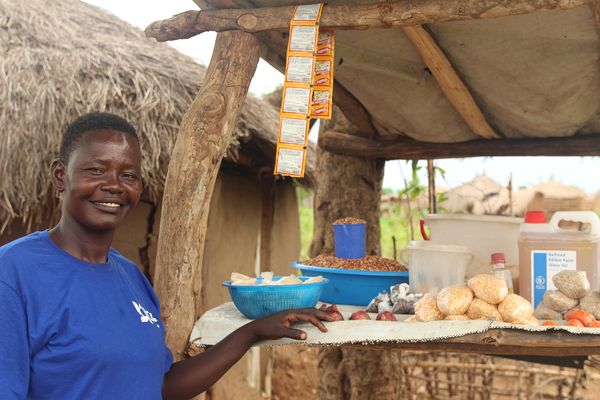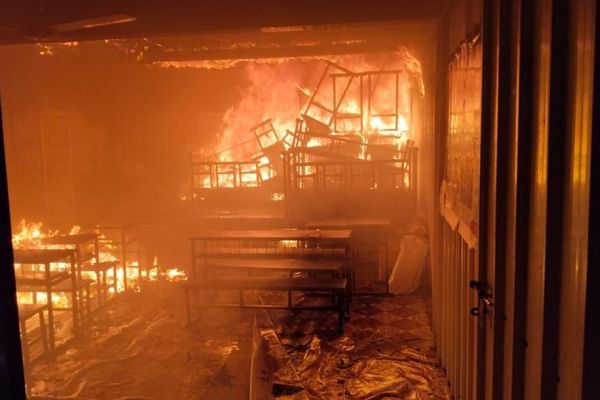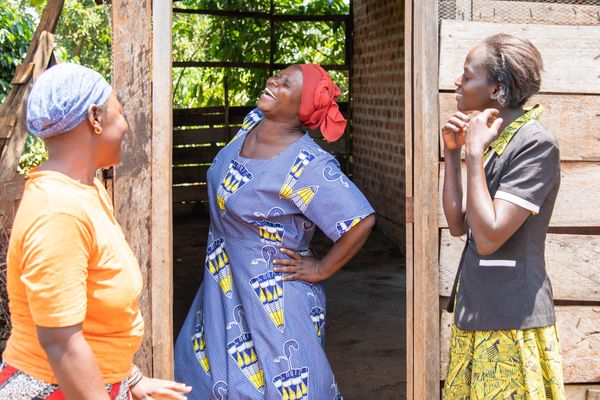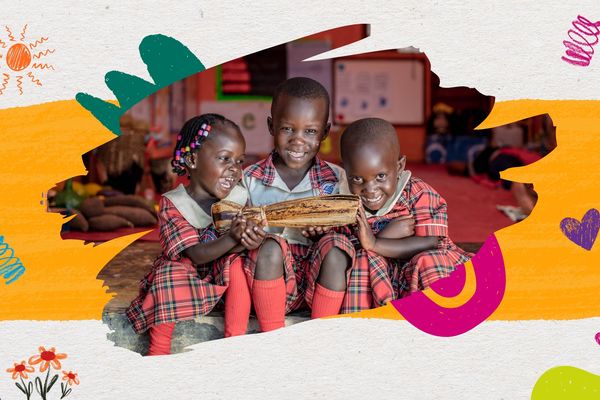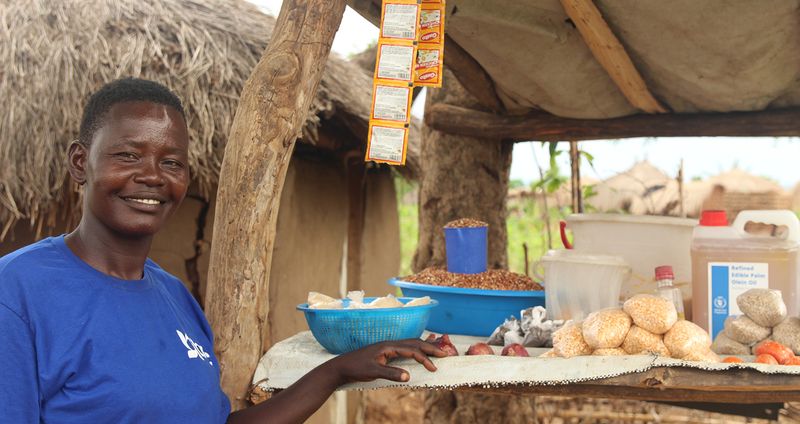
Today is the first day of Refugee Week. On Sunday, the world will mark World Refugee Day.
There are more than 110 million displaced people globally. But as new crises unfold, many of their stories become forgotten.
Uganda is Africa’s largest host of refugees, with nearly 1.7 million refugees residing within its borders. The majority of refugees have come from South Sudan and the Democratic Republic of the Congo, and many have lived in Uganda for several years.
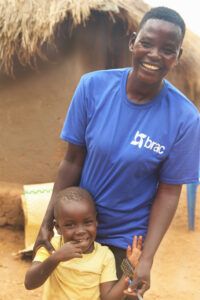
Last month, I had the opportunity to visit Arua, Uganda and meet Annet: one such refugee who has been living in Uganda for seven years.
After Annet fled South Sudan in 2017, she landed at the Imvepi refugee settlement in Uganda. Her home is bustling with nine people, including her four children, as well as her brother’s two children. Annet’s brother still lives in South Sudan.
“Things are very hard there,” she told me. “Children cannot study. Every day, you are running. You hear bullets. Hunger is throughout. And if you don’t have a job, what can you do?”
If you met Annet, you would never expect the hardship she has faced. She is extremely gregarious, exudes confidence, and has a contagious laugh.
It also became immediately clear to me upon meeting Annet that she is brilliant and driven. She has even taught herself near-fluent English since coming to Uganda, where English is an official language, though she didn’t speak a word of English before.
Throughout her first several years in Uganda, Annet and her family faced many challenges. But a year ago, she joined BRAC’s two-generation program for refugee families living in northern Uganda.
Annet participated in BRAC’s Ultra-Poor Graduation program. She gained skills in budgeting, entrepreneurship, nutrition, gardening, and animal care.
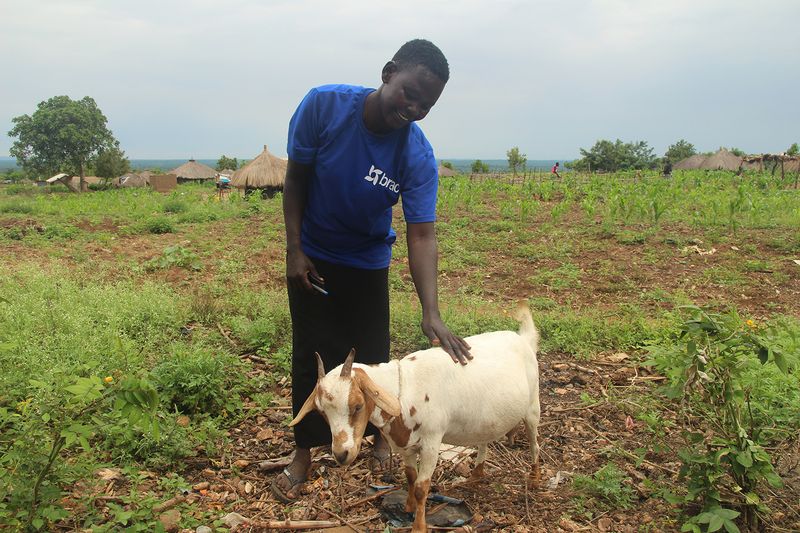
“[After our training], BRAC gave us nails, poles, and tarps, and we used other local materials to build a very good house,” Annet shared. On the 30 by 30 meter plot of land that Annet’s family received from the Ugandan government, she used the materials to build a sturdy home with clay walls and a water-resistant thatched roof.
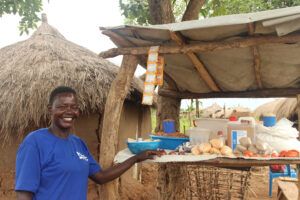 Next, Annet began expanding her businesses. BRAC helped her buy goats and ducks to raise, and later, she used her earnings from the sale of a goat to buy chickens.
Next, Annet began expanding her businesses. BRAC helped her buy goats and ducks to raise, and later, she used her earnings from the sale of a goat to buy chickens.
“I now have 11 goats. I love them!” says Annet.
Annet’s home is perched right on a main road through the refugee settlement: prime real estate. She built a small shop facing the street, where she sells spices, oil, and staple ingredients like beans and fresh produce. Annet has even rented a nearby plot of land from a member of the local host community, where she has started a thriving farm growing cassava and maize.
Meanwhile, Annet’s six-year-old daughter, Emma (pictured below), joined a BRAC Play Lab. Each day, Emma goes to the Play Lab to play and learn alongside other young children from both the refugee and host communities. The Play Lab, jointly led by Play Leaders from the local refugee community and host community, are a place for young learners to play, learn, heal, and grow.
The Play Lab is also helping prepare Emma, Annet’s youngest child, to start formal schooling next year. Annet’s older children are already in school.
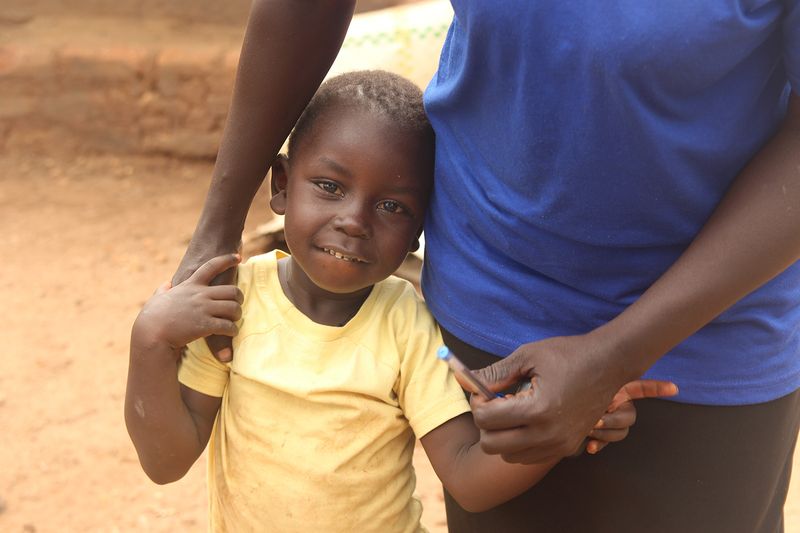
Annet reflects, “Two years ago, our sandals were not good, we had torn clothing — and now, [our lives] have changed.”
Looking ahead, she says, “I want to be at least a little rich. Not too rich, but in the middle. Enough to pay for something, the food, the children’s school.”
This dream is well within reach. Annet is part of her local Village Savings and Loan Association, a group of women refugees who save money together. The group, which was set up by BRAC but is fully run by the participants, consists of about 30 other women who participate in BRAC’s two-generation program.
In less than a year, Annet has saved 420,000 shillings (about $110), all while building a new home, investing in her many businesses, and putting her children through school.
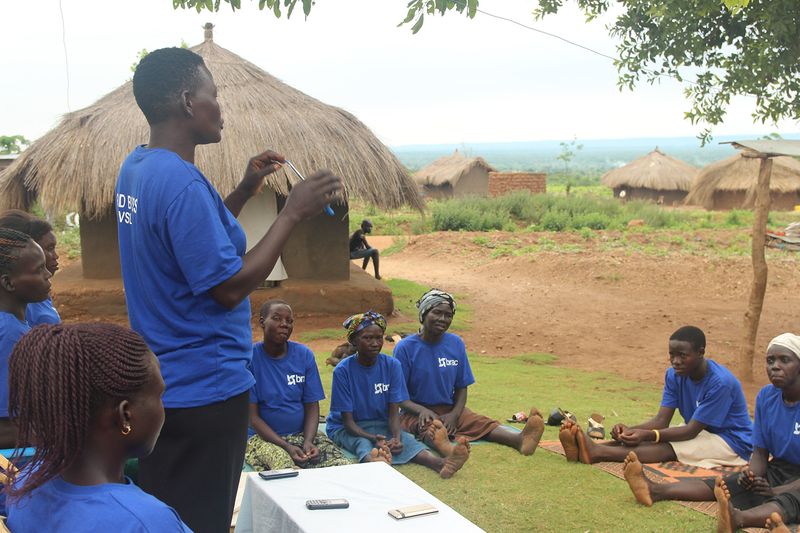
As she builds a stable life for her family, Annet says, “When I’m doing well, my door will be open for those who are not.”
Annet is one of 700 refugee women and their families who are benefitting from BRAC’s two-generation program. Her story is a reminder of the brilliance, resilience, and potential of refugees.
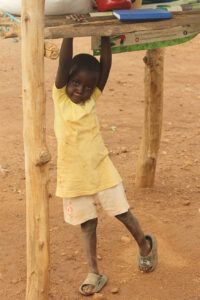
But tens of millions of refugees around the world do not have the same opportunities. Every refugee has the potential to build a better life: But not all of them have the potential.
To date, 2.3 million South Sudanese refugees have fled their homes due to conflict. Their stories are no longer in the news cycle, and funding for support programs is dwindling. Millions of refugees risk being left behind.
Will you make a donation this Refugee Week to support families like Annet’s? You can provide vital support for vulnerable refugee families as they rebuild their lives.
Learn more about how you can support refugees this World Refugee Day.
Sarah Allen is Communications Manager at BRAC USA.
